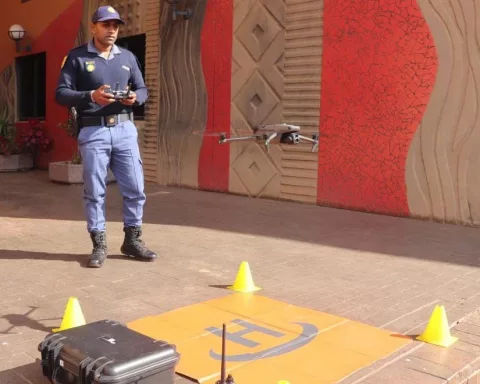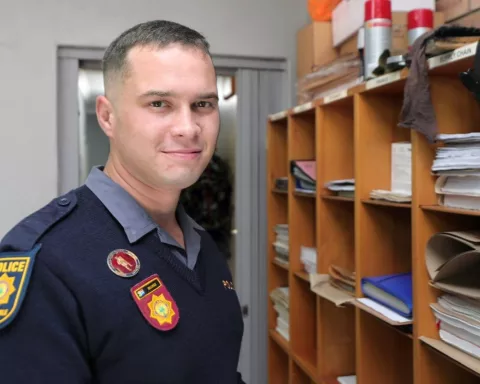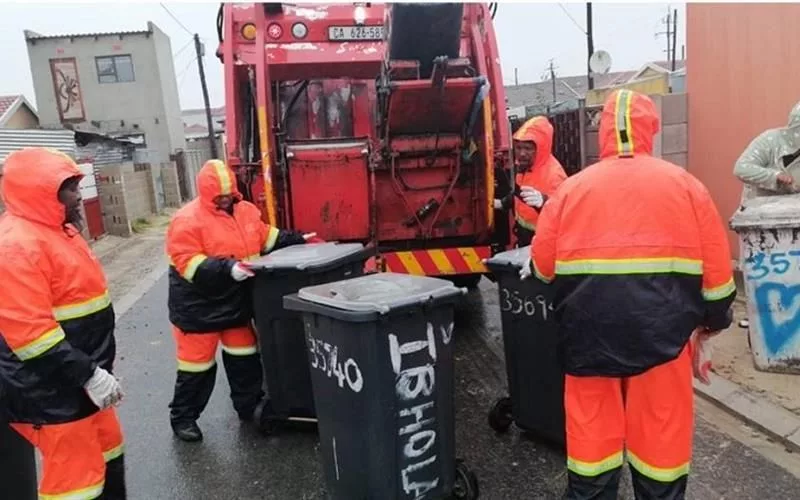South African Police Service (SAPS) is being investigated for possible gang infiltration within the Western Cape’s SAPS, amidst ongoing violent incidents in Cape Flats. The lacklustre response from SAPS has raised concerns about their ability to combat gang violence and eliminate illegal firearms. The investigation, initiated following a judgement made in March 2022, needs to be concluded swiftly to instill confidence in effective measures to address the violence. The situation requires a proactive, intelligence-led and preventative approach by SAPS management to restore safety and security to the affected communities.
South African Police Service (SAPS) is facing an internal investigation after concerns were raised about possible gang infiltration within the Western Cape’s SAPS. The ongoing violent occurrences and killings in the Cape Flats have highlighted SAPS’s lacklustre response and operational shortcomings in the area. A proactive, intelligence-led approach is necessary to combat gang violence and eliminate illegal firearms from the streets. Swift conclusion of the investigation is critical to instil confidence that effective measures are in progress to address the violence.
In light of a major legal judgement, Ian Cameron, chair of South Africa’s Portfolio Committee on Police, has requested an update on an ongoing internal enquiry within the nation’s police force. This investigation was initiated following a judgement made by Daniel Thulare in March 2022, which raised concerns regarding possible gang penetration within the Western Cape’s South African Police Service (SAPS). The allegation of such an affiliation carries potentially detrimental consequences for the SAPS’s reputation in effectively managing gang-related violence in the region.
Thulare’s Ruling Sparks Investigation
Thulare’s ruling brought the issue into acute awareness, particularly in view of the ongoing violent occurrences and killings in the Cape Flats. The SAPS’s apparent lacklustre response to these issues, as highlighted by Cameron, adds credibility to the assertions made in Thulare’s judgement. For the sake of reducing bloodshed in the region, bringing the investigation to a swift conclusion and subsequently prosecuting any officers suspected of gang collaboration is of utmost importance.
Unrelenting Violence in Cape Flats Calls for Action
Disturbingly, the Cape Flats has been a hotbed for persistent gang violence, with several instances of murder and attempted murder reported over a single weekend. The enduring unrest in the Cape Flats demands a well-rounded, proactive, and intelligence-led response.
Cameron characterizes the violence experienced over the recent weekend in Cape Flats as a glaring illustration of SAPS’s operational shortcomings in the area. The situation calls for a radical reassessment of interventions aimed at ensuring the safety and security of the region’s residents. Cameron condemned the current lackadaisical and haphazard tactics deployed by SAPS as unacceptable and unfair to the residents of Cape Flats. Swift conclusion of the investigation is critical to purge the SAPS of internal corruption and instil confidence that effective measures to address gang violence are in progress.
Requirements for a Proactive Response to Cape Flats Violence
In acknowledging the complexity of the violence in Cape Flats, Cameron underscored the conspicuous absence of a solid, intelligence-led approach by SAPS. The absence of proactive, preventative, and dissuasive operations in the region has cultivated an environment conducive for criminal activities. The Thulare judgement underscored the potential infiltration of SAPS by gangs in the Western Cape, a disconcerting revelation that has yet to be duly addressed by SAPS management.
This inadequate response has negatively affected the morale of ethical police officers serving in the area. The scarcity of intelligence operatives further hampers the work of SAPS in the region. Accordingly, Cameron insists on the necessity of updating the ongoing investigation and formulating strategies by SAPS management to counter the crime wave in the region.
Need for a Broader Strategy to Address Violence
Cameron also expressed distress over the savage murder of six individuals in Umlazi township located outside Durban. These rampant killings underscore the national issue of widespread illegal firearms. The majority of these murders are committed using illegal weapons, necessitating amplified operations by SAPS management to eliminate these firearms from the streets.
In concluding his statement, Cameron urged SAPS management to expedite investigations to ensure that those guilty of such atrocities are brought to justice. His comprehensive review and call for immediate action highlight the pressing need for effective strategies and proactive measures to reduce the violence and restore safety to the affected communities.
What is the reason behind the internal investigation of South African Police Service (SAPS)?
SAPS is being investigated for possible gang infiltration within the Western Cape’s SAPS, amidst ongoing violent incidents in Cape Flats.
What is the situation in Cape Flats and why is it concerning?
Cape Flats has been a hotbed for persistent gang violence, with several instances of murder and attempted murder reported over a single weekend. The enduring unrest in the Cape Flats demands a well-rounded, proactive, and intelligence-led response. The lacklustre response from SAPS has raised concerns about their ability to combat gang violence and eliminate illegal firearms.
What was the role of Daniel Thulare in this investigation?
Daniel Thulare’s ruling brought the issue into acute awareness, particularly in view of the ongoing violent occurrences and killings in the Cape Flats. The allegation of such an affiliation carries potentially detrimental consequences for the SAPS’s reputation in effectively managing gang-related violence in the region.
What are the requirements for a proactive response to Cape Flats violence?
The situation requires a proactive, intelligence-led and preventative approach by SAPS management to restore safety and security to the affected communities. The absence of proactive, preventative, and dissuasive operations in the region has cultivated an environment conducive for criminal activities.
What is the need for a broader strategy to address violence?
The majority of these murders are committed using illegal weapons, necessitating amplified operations by SAPS management to eliminate these firearms from the streets. These rampant killings underscore the national issue of widespread illegal firearms.
What is the importance of swift conclusion of the investigation?
Swift conclusion of the investigation is critical to purge the SAPS of internal corruption and instil confidence that effective measures to address gang violence are in progress. It is also necessary to ensure that those guilty of such atrocities are brought to justice.












